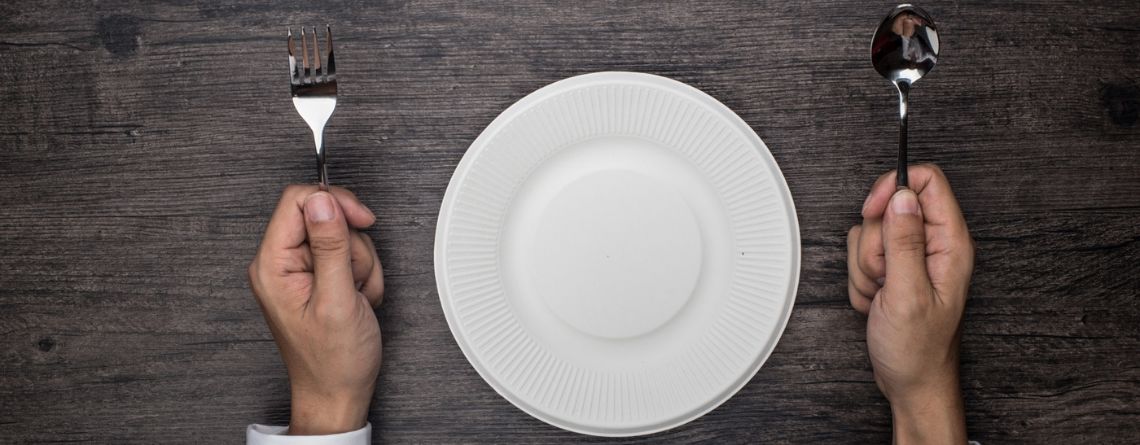Why Skipping Meals Is the Worst Mistake You Can Make!
Have you ever gone out with your friends for lunch and thought “Oh no! I’ve eaten too much, I’m just going to skip dinner!”
Or perhaps, you knew you were going out for dinner, and in anticipation, you thought, “Let me skip lunch so that I can eat whole-heartedly and guilt-free tonight?”

These deliberations are more common than you think.
- What happens if you skip meals?
- Does your body allow you to lose weight depending on the aggregate of the entire day’s food consumption?
- Does your body lose weight if you do not eat the whole day but only eat one single heavy meal?
- How does the body’s circadian rhythm react to skipping meals?
Let’s find out.
How is the circadian rhythm relevant to the human body?
Everything in the body is dependent on the Circadian Rhythm, an internal clock in the body that regulates the cycles of sleep, alertness, hunger, and other bodily functions. The basic functionality of human beings is dependent on this rhythm.

It is up to us to keep our bodies aligned with the circadian rhythm for the best results, which means eating food, waking up, falling asleep, and so on at the same time every day. This routine maintains harmony in the system.
If you are habitual to eating breakfast at 9 am, lunch at 2 pm, and dinner at 7 pm daily – to prepare for digestion, your gut will create acid accordingly. If you are used to sleeping at a certain time every day, the circadian rhythm will release melatonin (the hormone which promotes sleep) at the same time daily.
So, the circadian rhythm is the alarm clock of the body. Read more about the circadian rhythm in my free ebook here.
What happens to your body if you skip meals?
Skipping meals is overall considered detrimental to your health in many ways.
Acidity

The circadian rhythm is the body’s intact alarm clock, which functions simultaneously every day. If your body is expecting nourishment, or food at 9 am, 2 pm, and 7 pm every day, it will create acid to aid the digestion process at the same time. If the body is not given that food at its time, there will be an excess of acid in your system, leading to acidity.
The sympathetic nervous system is activated
If the body does not receive nourishment and energy at the time that it expects it every single day, the body then enters stress mode. The sympathetic nervous system is activated, leading to a rise in cortisol levels, inflammation, blood pressure, and blood sugar.

If your body is in stress mode, you might try hard to exercise and lose weight, but your body will conserve fat and not allow you to burn it.
Decrease in metabolic rate
If your body thinks it is starving, it automatically decreases your metabolic rate and starts using fat and glucose reserves, as it does not know when it will get the next meal. Not only exercise and diet help weight loss, but also the rate at which your metabolism functions.

If your metabolism is low, due to the activated sympathetic nervous system, it is difficult to lose weight, and also causes hormonal imbalances. Hormones manage communication in your body. When these are out of whack, imagine the miscommunication it can create in your body on a cellular level!
Your body is starved of nutrients
If you have skipped a meal, you have also missed a chance of feeding your body important nutrients derived from vegetables, fruits, grains, pulses, and so on. Do not be in the notion that you can eat enough for the entire day in one meal, and will starve yourself to compensate for the same.
You need to feed your body at its everyday time. Your body strives for balance. Keeping it clean by eating a rainbow at different meals is crucial.

Mood swings
Have you come across the word – hangry? This means a person who is angry when hungry. Your mood is not spoiled because you are hungry, but because on a cellular level, your body is getting frustrated due to starvation, which causes irritability, the inability to think, and mood swings. This also creates more acids in the body, leading to acidity.

Fasting vs skipping meals. What is the difference?
One very common misconception people have is confusing fasting with skipping meals. These are two completely different phenomena. Skipping meals means missing a significant meal, which could be due to many reasons.
Fasting on the other hand is setting a disciplined routine for your body, which aligns with your circadian rhythm, and allows your body to seamlessly perform all of its functions at the same time every single day.
People often make the mistake of altering their meal times often when they are fasting. This is wrong, as this reacts with the circadian rhythm of the body and activates the sympathetic nervous system. If you stop eating at 7 pm every night and start eating at 10 am every day, your body will set itself into a routine, and map important functions like digestion around the same time daily.
If you happen to disrupt your meal times once in a while, it is okay, your body can make do with it. But if this is a common occurrence, your system can go haywire with expectations of food, leading to internal confusion.
During intermittent fasting, if your body is not hungry at the same time as it is every day, it will give you the signs – you just need to listen, and then you can continue your fast for some time more. Want to start intermittent fasting the right way? Here is a 101 guide.
Can skipping meals help lose weight?
Though skipping meals will ideally lead to weight loss due to a calorie deficit, it is one of the worst things you can do to yourself. As I mentioned before, skipping meals upsets the body on a cellular level, because the body primarily only cares about survival, for which it needs nutrients, oxygen, and water.
Skipping meals will lead to weight loss at the start but will eventually lead you to hit a strong plateau, from where you might gain more weight than before. This weight will be stubborn and difficult to lose, as your metabolism is weaker than before.
Focus on eating balanced meals and losing weight the right way, without depriving your body.
Follow nature’s signs
Our bodies are so beautifully aligned with nature, that all we need to do is follow nature’s pre-set schedule. The healthiest way to follow a fast would be to eat when the sun rises, finish your last meal when the sun sets, and commence your fast.
Everything works as a rhythm in our bodies. The heartbeat, the pulse, the breath – everything follows a natural rhythm and creates harmony in the system. When the rhythm is broken there is disharmony in the system, which gives rise to all of these problems.
Though sometimes following this pattern of fasting might not be practical, it is ideal!
Be careful of children skipping meals

Do not let children get into the habit of skipping meals at all! Children need their nutrition more than adults, as they are growing and cannot afford to miss the nutrition that food brings to them. It disrupts their growth and shakes their hormonal balance out of place.
The bottom line
As far as possible, you should try your best not to skip meals. If you happen to for unavoidable reasons, then make sure to carry some tidbits like nuts or seeds, wherein you can feed your system something until you can eat a proper meal. Moreover, try your best to understand your system and bring it back into rhythm.
If you plan to eat later than your usual time, this is something that you know, but your body cannot understand. Find a routine that works for you – divide your meals into 2, 3, or 4 meals in the day, and be consistent by maintaining the discipline of eating on time.
Disclaimer: None of what is mentioned in this blog can replace medical advice. Always make an informed decision and keep your healthcare provider in the loop if you have a medical condition or are already on medication before trying anything new.
Confused about how to approach weight loss in a healthy way?
Connect for a one-on-one consultation with one of our integrative experts.
Know more about our All-new Fat Loss Muscle Gain Program here.
You can also find us on WhatsApp here, or mail us at info@lukecoutinho.com
You can also call us at 1800 102 2053
ALSO WATCH Skipping Meals: Good or Bad?
RELATED READINGS
25 Top Lifestyle Changes That Worked For Our Most Successful Clients In 2022
5 Lifestyle Changes to Win the Battle Against Acidity
Stop Making These Top 10 Fat Loss Mistakes!
Shop for ethically grown products for a holistic lifestyle on our wellness platform here.
|
From a pimple to cancer, our You Care Wellness Program helps you find a way Talk to our integrative team of experts today 18001020253 |










Comments (4)
Hi. I am 69 and after an IF of 12/14 hours I hv my glass of Amla juice with dry fruits. Post that I hv a plate of fruits. Around 12 I hv my brunch which co sister of ritu , sabji , dal , salad , curd. Around 2 a plate of fruits and 5 pm a cup of tea , without sugar and 2 biscuits. Dinner is latest by 8 which is of soup , sprouts / vegs / kebabs. I am a diabetic and also hv thyroid issue. This routine suits my body so is it ok if I continue with it ?
Yes, do what suits you and keep your sugar under control. Keep your healthcare expert in the loop at all times. Keep winning 🙂
Very true
🙂